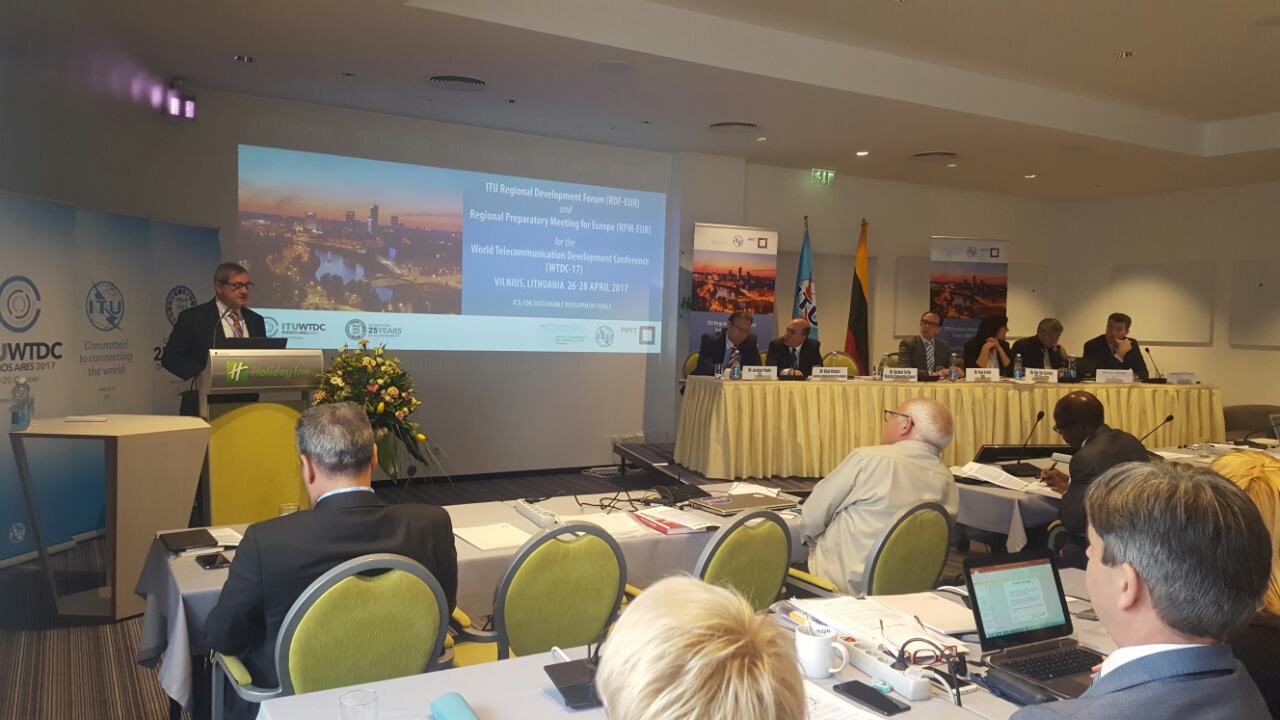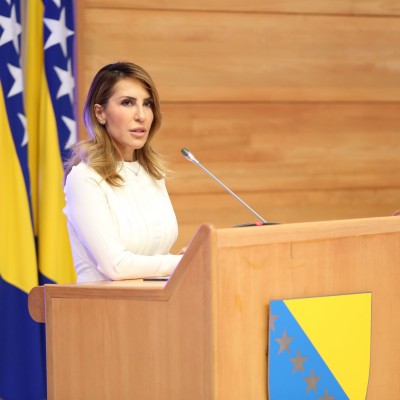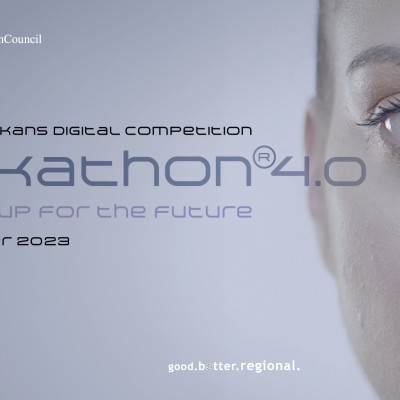RCC: Western Balkans is not to be left out from the Pan-European digital infrastructure map
26 April 2017

Gazmend Turdiu, Deputy Secretary General of the Regional Cooperation Council (RCC) speaking about digital infrastructure at the International Telecommunication Union (ITU) Regional Development Forum for Europe in Vilnius, 26 April 2017 (Photo: RCC/Maja Handjiska-Trendafilova)
Vilnius – “Western Balkans is not to be left out from the Pan-European digital infrastructure map. However, it must develop future-proof broadband policies and targets and accelerate high-speed broadband roll-out”, said Gazmend Turdiu, Deputy Secretary General of the Regional Cooperation Council (RCC), at the International Telecommunication Union (ITU) Regional Development Forum for Europe in Vilnius today.
Turdiu spoke at the panel on fostering development of ICT Infrastructure for sustainable development, focusing on the initiatives undertaken at the regional level addressing the development of broadband access and adoption of broadband as well as spectrum management and transition to digital broadcasting.
“It is RCC’s firm belief that exploiting digital integration’s untapped potentials ensures supply of innovative and competitive services to consumers and businesses in the region and acts as an important lever for socio-economic development, high value jobs generation and vibrant knowledge-based society, which are the fundamentals of the RCC’s South East Europe 2020 Strategy,” he added.
Turdiu reminded that the success of regional approach is demonstrated with the regional initiative to reduce roaming costs. He stressed that the RCC’s future work will aim at supporting regional roaming and broadband agendas, supporting a regional study on Digitization prospects in WB, in cooperation with private sector, and incorporating digital integration agenda in the high level regional political processes, such as the Berlin process and the high level ICT Western Balkan Summit.
WB6’s integration in the pan-European digital market still requires an updated regulatory environment; improved broadband infrastructure and access to digital goods and services; and digital literacy so as to unlock the potential of the digital economy.
This year Regional Development Forum, focusing on ICTs for sustainable development, provides a unique opportunity for high-level dialogue, cooperation and partnerships among telecommunication/ICT policy-makers, regulators, industry, academia, regional and international development agencies and organizations on specific actions undertaken at the regional level strengthening the impact of the ICTs on the sustainable development.




